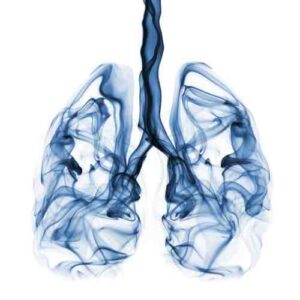Mesothelioma, a malignant type of cancer, is a condition that occurs in the membrane surrounding the lungs, heart, and abdomen (abdominal organs). Commonly known as lung membrane cancer, mesothelioma is more frequently observed in individuals exposed to a substance called asbestos.
What is Lung Membrane Cancer (Mesothelioma)? Asbestos is a mineral with a fibrous structure. It adheres to the lung membrane after inhalation and is carcinogenic, which leads to mesothelioma. Globally rare, mesothelioma is more commonly seen in our country compared to global averages.
What are the Symptoms of Mesothelioma? Symptoms of mesothelioma appear after a certain period and include fluid accumulation and swelling in the lung membrane. This fluid accumulation and swelling can cause pain in the back, chest, and sides as the disease progresses. Initially, a stabbing pain may be observed while breathing, but this sensation intensifies and becomes a persistent issue. Along with pain, some cases may also experience shortness of breath and coughing.
Who is at Risk for Mesothelioma? The risk of contracting lung membrane cancer, or mesothelioma, applies to the general population. However, certain professions are more prone to this disease. Some of these occupational groups are listed below:
- Individuals working in the production or maintenance of automobile brake pads
- Workers in places where materials used for thermal insulation are produced or individuals involved in insulation work
- Workers in shipyards
- Individuals involved in the construction of homes with white soil in rural areas or those residing in such homes
How is Mesothelioma Diagnosed? Individuals with symptoms of lung membrane cancer should consult a doctor, who will conduct a physical examination. During the examination, if the chest area where the pain is located is smaller compared to the other side and the shoulder in the same area is lower, mesothelioma may be suspected. Additionally, reduced breath sounds in the patient strengthen this suspicion.
Along with the physical examination, chest X-rays and CT scans are requested. The presence of fluid in the pleural cavity and thickening of the membrane may indicate mesothelioma. However, since these symptoms and signs can also suggest other diseases like tuberculosis, a definitive diagnosis is made through a biopsy of a tissue sample taken from the chest. There are three different types of biopsies that can be applied for a definitive diagnosis:
- Open pleural biopsy
- Closed pleural biopsy
- Thoracoscopic examination
Research has shown that thoracoscopic examination provides the most effective results.
How is Mesothelioma Treated? Lung membrane cancer is categorized into three subtypes: sarcomatous, epithelial, and mixed. There is no standard treatment method for mesothelioma. Scientific studies have been ongoing for years, and no definitive treatment method has been established.
Multidisciplinary approaches are emphasized in the treatment of lung membrane cancer. Similar to many cancer types, surgical operations, chemotherapy or drug treatment, and radiotherapy (radiation therapy) are used. Combining these methods according to individual needs has yielded successful results. Combining surgery with radiation and drug treatment has shown particularly successful results in epithelial types. Surgical operations remove cancerous cells from the body. If the disease has spread to tissues such as the diaphragm and pericardium, these tissues can also be removed surgically.
Surgical Procedure Surgical operations are applied to the epithelial type. For sarcomatoid and mixed types, individuals are directed to chemotherapy or radiotherapy. There are four stages in the staging of lung membrane cancer. Surgery is an option only for patients detected in the first two stages and very early on. Generally, this disease is insidious and asymptomatic, and by the time a diagnosis is made, the disease is often at an advanced stage. Various open and closed surgical methods are available. The type of surgical procedure is decided by the doctor based on the patient’s overall condition and the characteristics of the cancer. Techniques vary from complete removal of the lung, heart, or diaphragm to partial removal of only the lung membrane or a specific area.
For individuals who can undergo surgery, chemotherapy and radiotherapy are offered as a combined treatment for those who experience recurrence after surgery or show spread to other organs. In such cases, chemotherapy may not be as effective as it is for other tumors due to potential poor blood supply. However, continuously updated methods have achieved successful outcomes. In radiotherapy, critical organs that may be damaged due to the wide area affected by the disease must be carefully managed. Therefore, treatment should be administered with great caution, and the amount of radiation delivered should be adjusted to minimize damage to healthy tissues.
Treatments can also be applied to reduce shortness of breath and pain. Fluid accumulation in the lungs can be drained via a chest tube. To prevent fluid accumulation from recurring, pleurodesis (a sealing procedure) can be performed. For detailed information about mesothelioma, you can visit our clinic or contact us through our contact page.

